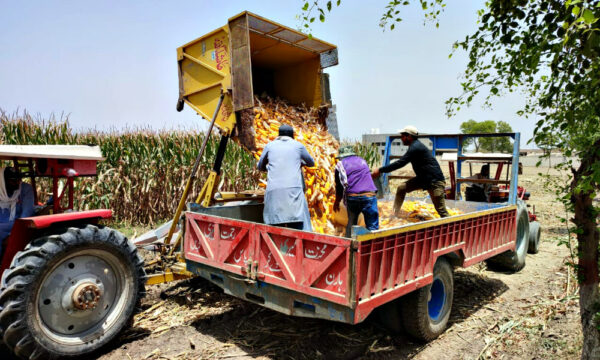Bt maize (which contains a toxin gene from Bacillus thuringiensis) is genetically engineered to limit damage from certain insect pests. Fungal infestation, which leads to mycotoxin contamination, is known to follow pest damage. So can the Bt toxin also help by reducing mycotoxins in maize?
Felicia Wu from the University of Pittsburgh examines the sometimes conflicting evidence in a paper in CAB Reviews. Aflatoxin is the most serious mycotoxin in terms of financial impact, and it appears that levels of this toxin are not consistently reduced in Bt maize in comparison to non-Bt maize, although future Bt maize varieties may have a more positive effect. However, fumonisin, another important mycotoxin, is reduced in almost all studies. Fumonisin is associated with oesophageal cancer and neural tube defects. Reducing fumonisin through Bt could have significant benefits in developing countries, especially where unprocessed maize is a key part of the diet, and so mycotoxins are present at levels which can health problems. It also could help them avoid losses in the export market through rejection of contaminated maize.
The paper, “Bt corn and impact on mycotoxins” appears in CAB Reviews: Perspectives in Agriculture, Veterinary Science, Nutrition and Natural Resources, 2007, 2, No. 060, 8 pp.
Related News & Blogs
Perceptions of genetically modified crops under the microscope in Kenyan study
The perceptions of Genetically Modified (GM) crops has come under the microscope as part of a study in Kenya aimed at investigating technological challenges in development and food security. As part of a project, funded by The British Academy and in pa…
6 June 2023




